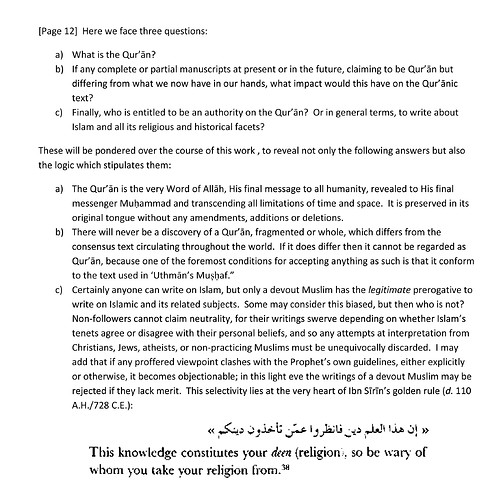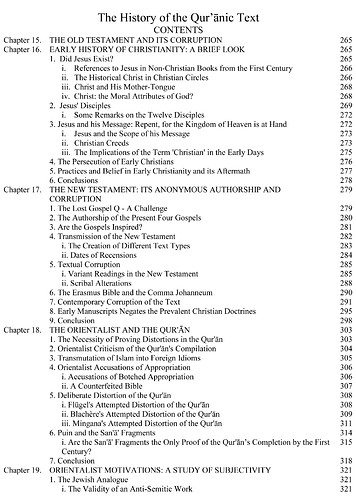Priceless!
No He didn’t.
People, the Bible says, “Do not feed the trolls.” Otherwise the whole thread will be derailed.
Chapter and verse, please. ![]()
It might take me some time to find it, but it’s gotta be there, right?
I’m sure it can easily be inferred in several places in the book of Proverbs. 
An atheist would neevr admit he is sinning.Because he doesnt believe in sin.Deal with it.Universalim is you ending up in Heaven with Stalin even though he didnt believe in any of it.Its simple.You are trying to change the subject .Refute these two if you can
The Scripture imploreth us: “Thou shalt not feed the trolls!”
I’ve had a good look at what I wrote and I don’t see any unfair criticism that I have made of you.
An atheist doesn’t see evidence for God. This does not preclude them from having a conscience and acting ethically. Nor does it preclude them from admitting wrong doing, having remorse and seeking forgiveness and making amends.
God made everyone with a conscience. An atheist has not, in being an atheist, deadened their conscience.
Perhaps a trip down memory lane will refresh your memory.
- I wrote: Post # 111 above, in which I wrote a number of things, including:
-
LOL! So says the person who believes and wants others to believe that Brahman, Allah, and any ol’ “One God” is the same as anybodyelse’s “One God”. What are you? a closet Baha’i? That’s what the Baha’i believe and teach.
So what if the words of Paul are highly suspect? Do you think I’m naive enough to back down from my criticism of Allah, Muhammad, and the Quran just because you can point to inconsistencies and inaccuracies in any writings attributed to Paul, or in the New Testament or Old testament, for that matter.
-
- You responded, in Post #112, with:
- Me: Whoops! my mistake!! You didn’t actually accuse me of denigrating Islam and the Prophet Muhammad, did you. You just accused me of trying to denigrate Islam and the Prophet Muhammad. In any event, your criticism of me was unfair criticism. “How so?” you may ask; so let me see if I can make my point more clearly.
- Terry admitedly criticizes Islam and Muhammad’s prophethood.
- Ani characterizes Terry’s criticism as “denigration of Islam and the Prophet Muhammad.”
- Terry has attempted to present rational reasons for his criticism.
- Ani has yet to rationally refute Terry’s reasons.
- Ani’s criticism of Terry’s criticism and her characterization of his criticism as “denigration” is itself unfair criticism.
- Ergo, you have, in fact, criticized me unfairly.
- Q.E.D.
- There’s another instance in which you criticized me unfairly which not so obvious. But it bears mention here.
- Elsewhere, I identified irreconcilable differences between you and me.
- You responded to my mention of the irreconcilable differences as follows:
-
All the irreconcilable differences boil down to your insistence that your religion is the right one and all else are in error.
-
- Elsewhere, you wrote:
It is not about one religion winning over any other religion. It is not about “our religion is the right religion and yours is not”. This is the division that is created by the inhumane, who are on all sides and appear as good Christians or good Muslims or good Buddhists or good atheists etc., etc.
- In your zeal to promote your syncretism, you have decided that people who promote one but not all religions are “inhumane”.
- Because you believe that the differences between you and me “boil down to [my] insistence that [my] religion is the right one, all else are in error”, I am forced to conclude that you deem me to be “inhumane”. And I marvel at your obtuseness.
- What is it about orthodox (traditional) Islam’s “stenographic view” of the Quran as the ipissima verba of Allah revealed to Muhammad that you do not understand or accept? IMO, your voluntary unwillingness or your involuntary inability to acknowledge that the Quran, Muhammad, and Islam are, at root and core, inexorably and permanently contrary to any other written or oral revelation from outside of the human realm and that that fact puts Allah at odds with any other version of God. And yet you blithely affirm that everyone else should agree with you.
And I can only wonder:
You belittle yourself when you make this kind of remarks of others.
That’s it??? What? no objection to or refutation of anything else in the post? You denigrate my fair criticism and consider me inhumane, and blithely ignore the stenographic view of Allah’s revelation to Muhammad, and expect me to sit on my hands while you slander your way through this world. Your response leaves much to be desired. Welcome to my “Ignore” list. Enjoy your stay.
This video for medical students Stress and COVID 19: Improving The Immune System, Anxiety, and Depression, has enough comment in it that most lay people can understand.
Stress and COVID 19: Improving The Immune System, Anxiety, and Depression - YouTube
Source: THE HISTORY OF THE QUR’ANIC TEXT by Dr. Muhammad Mustafa al-A‘zamī.
-
“From Revelation to Compilation ! A Comparative Study with the Old and New Testaments Dr. Muhammad Mustafa al-A‘zami Beginning with a catalogue of ancient and contemporary attacks on the Qur’an, this expansive book provides unique insights into the holy text’s immaculate preservation throughout its history and explores many of the accusations leveled against it. The reception of divine revelations, Prophet Muhammad’s role in teaching and disseminating these verses, the text’s compilation under his guidance and the setting of its final external shape shortly after his death, are meticulously and scientifically examined alongside such topics as the origins of Arabic, its palaeography and orthography, the so called Mushaf of Ibn Mas`ud, and the strict methodology employed in assembling textual fragments. It also investigates the histories of the Old and New Testaments, relying entirely on Judeo-Christian sources and uncovers a startling range of alterations that touch almost every facet of the Biblical Scriptures. Using this as a springboard for assessing Western theories regarding the Qur’an, he makes a sophisticated yet passionate case for questioning the aims of Western scholarship continuously undermining Islam’s Holy Book and illustrates convincingly that such research has no scientific bearing on the Qur’an’s integrity. This monumental effort provides a welcome foundation for sincere study at a time when assailing the Qur’an has become all too common.”
As informative as the quotes in my last post, from al-Azami’s “The History of the Qur’anic Text”, are, IMO they are not as clearly supercessionist as the chapter, section, and topic headings listed in the following portion of Contents:
From what I’ve read, anti-christians could get a lot of ammunition just from Chapters 16 through 18. Chapter 15 would add ammo, if they want to increase their target area to include the Tanakh and Judaism.
Of most interest to me are the following tidbits:
- Chapter 16, Section 1, Topic (ii): The Historical Christ in Christian Circles
- “These canonical sources, four gospels and other NT writings, are so meagre that they do not allow the objective compilation of a full biography. The life of Jesus was in fact relevant only insofar as it furthered Christian dogma; with only a handful of gospel passages ever emphasised in congregations
…, " interest in the historical Jesus was at best merely subsidiary.”
…
“After twenty centuries the historical material remains so scant that even the sketching of a basic outline is problematic, unless one chooses to forsake historicity and rely instead on the ‘Jesus of faith’ as portrayed in the NT.”- Terry’s note: al-Azami obviously wants his readers to believe that the superiority of the Qur’an’s version of Jesus’ biography, being the ipissima verba of Allah, exceeds the meager and unreliable Christian version available.
- “These canonical sources, four gospels and other NT writings, are so meagre that they do not allow the objective compilation of a full biography. The life of Jesus was in fact relevant only insofar as it furthered Christian dogma; with only a handful of gospel passages ever emphasised in congregations
- Chapter 17, Section 8: Early Manuscripts Negate the Prevalent Christian Doctrines
- The Trinity
- The Deity of Jesus
- Atonement
- Ascension
Elsewhere, in another thread, I wrote about my belated realization that the Bible’s “reliability” can be thought of in terms of its “factuality”, i.e. “How accurate are the events and chronology of the events that are recorded in the Bible?”; or in its “textual accuracy”, "i.e. “How accurately does today’s Bible represent original documents?” More recently, I’ve also added the Bible’s “essentiality”, i.e. “What, in the Bible, is essential?”, to my list.
IMO, al-Azami questions all three: the Bible’s factuality, the Bible’s textual accuracy, and the Bible’s essentiality, in order to support his claim of the Qur’ans superiority. However, I am not dismayed nor fazed by his arguments. On the one hand, I am the beneficiary of personal companionship with people–whom my father called “defective saints”–in the flesh whom I have personally seen, touched, and known. On the other hand, al-Azami’s monumental efforts fail like the tower of Babel, because the Qur’an’s forgery of Jesus reveals the ignorance of Allah and Muhammad and all who put their trust in it.
Tell my why does an atheist need to abstain from sex till marriage or not judge others or any of it if he truly wants it?
Does Islam teach reincarnation?
Why should anyone abstain from sex till marriage. There is no sin in sex. It is a control tactic used in many religions.
Judging others to some extent is important for your wellbeing and certainly not a sin. If you let things ride then another person can cheat you. Sure sometimes we might get it wrong. If you haven’t been in a particular situation you might unfairly judge the other. It happens. But this has nothing to do with wrong doing in a way that harms others.
From what I have seen an atheist still has a conscience and empathy. Most atheists that I have known were/are humane. They still act by their conscience and have empathy for others. And like everyone else they can do somethings wrong sometimes. But here again, I have seen that they are willing to admit the wrong doing, have remorse and are willing to make amends to get the forgiveness of the person they wronged.


